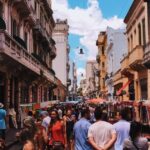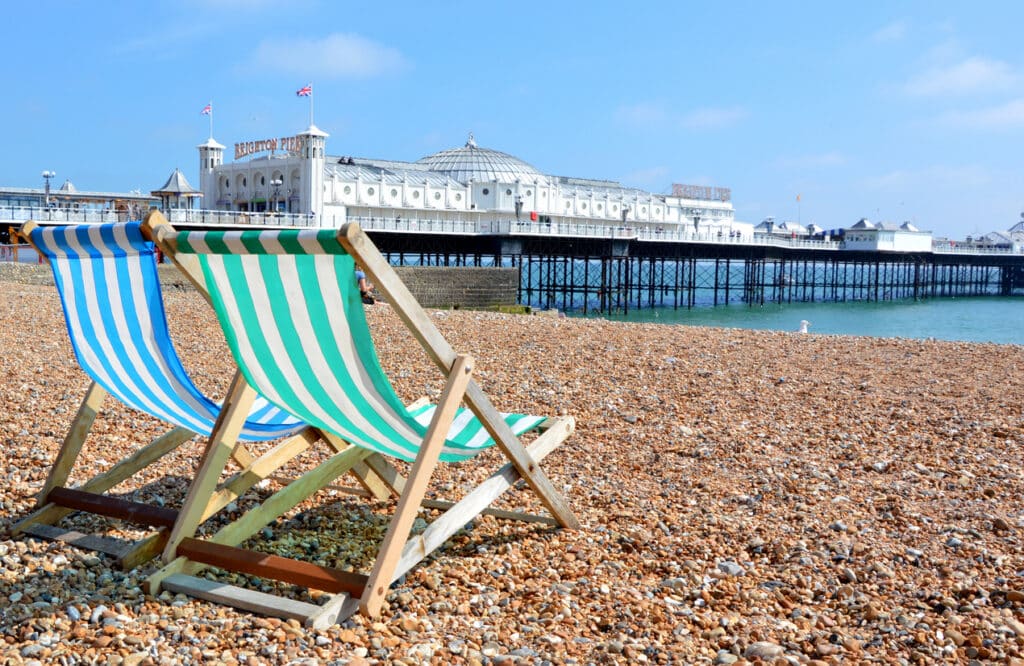If you’re looking to spend your golden years in a safe, beautiful, and affordable country, you may want to retire in Argentina. A fascinating blend of South American and European cultures, Argentina has taken off in recent years not only as a vacation destination but also as a place to live.
Digging beyond the surface-level topics — like where to go and what to do — into healthcare, visa options, and of course, taxes, we prepared this guide with the most important information about Argentina as a potential retirement destination.
Read on to learn why retirees are moving to this South American hotspot, how to do so, and what life there looks like.
Key Updates for 2025: Retiring in Argentina
- Argentina’s minimum wage increased to 286,711 ARS (~$278) per month in 2025, raising the retirement visa income requirement to 1,433,555 ARS (~$1,390) per month.
- Wealth tax exemption thresholds may be adjusted in 2025, impacting tax residents with significant assets.
- High inflation continues, making USD savings and international income sources essential for financial stability.
Benefits of retiring in Argentina
Some of the reasons Argentina has turned into an up-and-coming retirement destination include its:
- Natural beauty: Argentina boasts a diverse geography featuring everything from beaches to glaciers, waterfalls, mountains, wetlands, vineyards, canyons, and lush national parks
- Affordability: By some estimates, the cost of living in Argentina is 59% lower than that of the United States
- Safety: Thanks to its relatively low crime rates, the Global Peace Index ranks Argentina as the second-safest country in South America
- Tax incentives: Argentina excludes savings from taxation, which allows many retirees living off of pension income to avoid Argentinian taxes
- Culture: Between tango dancing, soccer matches, colonial architecture, and lively street festivals, Argentina offers a rich and unique culture
- Food & wine: From dishes like empanadas, grilled meats, and Argentine pizza to world-renowned Malbecs and Chardonnays, Argentina is a gourmand’s dream
- Friendly locals: Argentinians are warm and welcoming, placing great value on friends, family, and community
- Climate: While the climate varies by location, most of Argentina has warm summers and mild winters
- English proficiency: According to the English Proficiency Index, Argentinians have a stronger command of English than any other country in Latin America
- Infrastructure: Argentina has a high-quality healthcare system, schools, and public transportation
Potential challenges for retirees in Argentina
There are pros and cons to living anywhere, and Argentina is no exception. Some possible difficulties for American retirees thinking of moving there include the:
- Economy: Argentina’s economy suffers from instability, with high rates of inflation in recent years. However, US dollars hold significant purchasing power there in comparison to Argentine pesos
- Distance from the US: Travel between the US and Argentina is often lengthy and expensive
- Inefficiency: Some US expats living in Argentina complain of bureaucratic processes and a lack of urgency
That said, many Americans living in Argentina find that the benefits outweigh the drawbacks.
How to retire in Argentina
To live in Argentina for more than 90 days at a time, Americans need a long-term visa. Fortunately, Argentina offers a dedicated visa for retirees and those with high enough passive income.
Note:
The Permiso de Ingreso Temporario como rentista o pensionado — the temporary residence permit for the economically solvent and retirees — is more commonly called the pensionado visa/retirement visa.
Argentina retirement visa: Eligibility & requirements
To qualify for Argentina’s retirement visa, you must:
- Bring in a monthly income worth 5x Argentina’s minimum wage: As of 2025, Argentina’s minimum monthly wage is 286,711 (~$278). Therefore, those hoping to apply for the retirement visa should earn at least 1,450,000 ARS — or about $1,390 — in recurring monthly income.
- Note: Those below retirement age must prove they have earned this income for at least two years.
- Have a clean criminal record: You must not have been convicted of a crime in Argentina or anywhere you’ve lived for at least a year in the past three years.
- Hold health insurance: Applicants must purchase a private health insurance policy that lasts for the entire duration of their stay.
Permissions, restrictions, & duration
Argentina’s retirement visa allows holders (along with their spouse and dependent children/parents) to legally live in the country for up to one year. However, the visa does not allow holders to work in the country.
As long as you continue to meet the requirements, you can renew the visa twice more for a stay of up to three years total. After two years of legal residence, you can apply for permanent residency or citizenship in Argentina.
Required documents & application process
To apply for Argentina’s retirement visa, you must:
- Gather the required documents:
- Passport
- Passport-sized photos
- Application note containing personal information and an explanation of why the applicant wants to move to Argentina
- Proof of passive income
- Health insurance policy
- Criminal record
- Proof of accommodations in Argentina
- Fee (typically $6,000 for Americans)
- Request an appointment at your local consulate
- Submit your application in person
- Receive approval (typically one to three months)
Remember:
All official documents must have a Hague apostille and an official Spanish translation.
How much does it cost to retire in Argentina?
While you will need to earn at least $1,390 per month in passive income to qualify for Argentina’s retirement visa, your monthly expenses will likely exceed that.
You can generally live comfortably in Argentina on $1,400 to $1,700 per month as an individual or $2,200 to $2,700 per month as a couple. Depending on your lifestyle and location, of course, your costs may reach $4,000 per month or more.
Best places to retire in Argentina
While there are many great places to live in Argentina, the three locations below stand out as some of the best options for expat retirees.
Buenos Aires
If you’re seeking a big city with a European vibe, look no further than Buenos Aires. Argentina’s capital — home to 3.12 million people — is a thriving, cosmopolitan metropolis. Known as the Paris of South America, Buenos Aires offers world-class museums, charming cafés, European-style architecture, and a thriving arts and cultural scene.
Popular neighborhoods in Buenos Aires for expats include Palermo, Recoleta, and Puerto Madero.
Mendoza
While Buenos Aires is the nation’s capital, Mendoza is the undisputed wine capital of Argentina.
With over 800 wineries and 150,000 hectares of vineyards, Mendoza produces over 70% of Argentina’s wine — earning it the title of one of the eleven great wine capitals of the world. If that weren’t enough, Mendoza has excellent restaurants, sunny weather, and views of the Andes Mountains.
Popular areas near Mendoza for expats include downtown, Chacras de Coria, and Godoy Cruz.
Mar del Plata
If a beach town with a relaxing lifestyle is more your speed, consider the seaside resort of Mar del Plata.
Located on the coast of the Atlantic Ocean, Mar del Plata offers numerous beaches perfect for surfing, swimming, sunbathing, playing volleyball, and strolling. In town, you can check out attractions like the cathedral and restored lighthouse Torreón del Monje as well as explore parks, boutiques, and gourmet markets.
Popular areas near Mar del Plata for expats include Playa Grande, Stella Marris, and Los Troncos.
Healthcare options for retirees in Argentina
In general, Argentina has a great healthcare system that often ranks among the best in South America. The country’s public healthcare system — available to about half of the population — pays for most medical care free of charge and subsidizes prescriptions between 40% and 70%.
Major cities and areas popular with expats and retirees tend to have highly qualified staff, modern facilities, and extensive treatment options. That said, care varies greatly by location, with rural and lower-income areas often lacking in quality. And throughout the country, wait times, especially for specialists, can be lengthy.
Note:
To qualify for Argentina’s retirement visa, applicants must purchase a private healthcare policy. Fortunately, private insurance premiums are significantly lower than they are in the US — often, as little as $40 to $50 per month.
Do Americans pay taxes in Argentina?
Regardless of where in the world they live, all Americans who exceed the minimum income reporting threshold are subject to US taxes. In some cases, they may even be liable for state taxes.
If they qualify as Argentinian tax residents, this can potentially open US expats up to double taxation, but they can usually avoid paying taxes on the same income to both countries.
Argentina taxes
Argentina considers foreign nationals who reside in the country for more than 12 months to be tax residents, while those who live there for a shorter duration are considered foreign beneficiaries.
Tax residents are subject to Argentinian taxes on worldwide income, while foreign beneficiaries are subject to taxation only on Argentinian-sourced income. This means retirees who move to Argentina often pay no Argentinian taxes for the first twelve months.
Furthermore, Argentina does not tax savings income, making it possible for retirees who live off of savings to avoid income taxes. Standard income tax rates range from 5% to 35%. Other types of taxes relevant to US expat retirees include:
- VAT: 21%
- Wealth tax: 0.5% to 1.75% on those with assets exceeding 27.3 million ARS (~$30,545) in value
- Note: Argentina’s tax authority typically excludes primary homes and savings accounts from this calculation
- Bank account debits & credits: 0.6%
- Capital gains: 15%
US taxes
While moving abroad does not exempt US citizens and permanent residents from their US tax and reporting obligations, it does give them a couple of unique tax breaks:
- The Foreign Tax Credit (FTC): The FTC provides Americans with dollar-for-dollar tax credits on any foreign income taxes they pay, which they can apply to their US tax bill
- The Foreign Housing Exclusion (FHE): The FHE lets Americans living abroad who meet either the Physical Presence Test or the Bona Fide Residence Test offset certain qualifying housing expenses (e.g. rent, utilities, parking)
Note:
The US federal government taxes some retirement income at lower rates than traditional earned income. For example, just 85% of Social Security payments are subject to taxation. Withdrawals from post-tax accounts like Roth IRAs and Roth 401(k)s, meanwhile, are tax-free.
A couple of the most common reports US expats must file include the following:
- Foreign Bank Account Report (FBAR): Americans with over $10,000 total across foreign financial accounts must file FinCen Form 114
- Statement of Specified Foreign Assets (Form 8938): Americans with over $200,000 in foreign assets on the last day of — or over $300,000 in foreign assets at any point during — the tax year must file Form 8938
- Note: Americans living within the US sometimes need to file this report as well, but the reporting thresholds are significantly lower: $50,000 and $75,000 rather than $200,000 and $300,000
Frequently Asked Questions: Retiring in Argentina
-
How much monthly income do I need to retire in Argentina?
To qualify for Argentina’s retirement visa, you need at least 5x the national minimum wage in passive income per month. As of 2025, that’s 1,433,555 ARS (~$1,390), but this amount may change if the minimum wage is adjusted again.
-
Do US retirees have to pay taxes in Argentina?
For the first 12 months, most foreign retirees don’t pay Argentinian taxes unless they earn income from Argentinian sources. After that, tax residents are taxed on worldwide income at rates ranging from 5% to 35%, but savings income remains tax-free, which can benefit retirees.
-
Is private health insurance required for retirees in Argentina?
Yes, Argentina’s retirement visa requires you to have private health insurance for your stay. Plans are far cheaper than in the US, often costing $40 to $50 per month for basic coverage.
-
How does Argentina’s economy affect US retirees?
With high inflation, the Argentine peso fluctuates significantly, impacting daily costs. Many expats keep their savings in USD and exchange to ARS as needed to maintain financial stability.
-
Can I become a permanent resident or citizen in Argentina?
Yes. After two years of legal residence, you can apply for permanent residency, and after two more years, you may apply for Argentinian citizenship if you meet residency requirements.

 Connect on LinkedIn
Connect on LinkedIn






